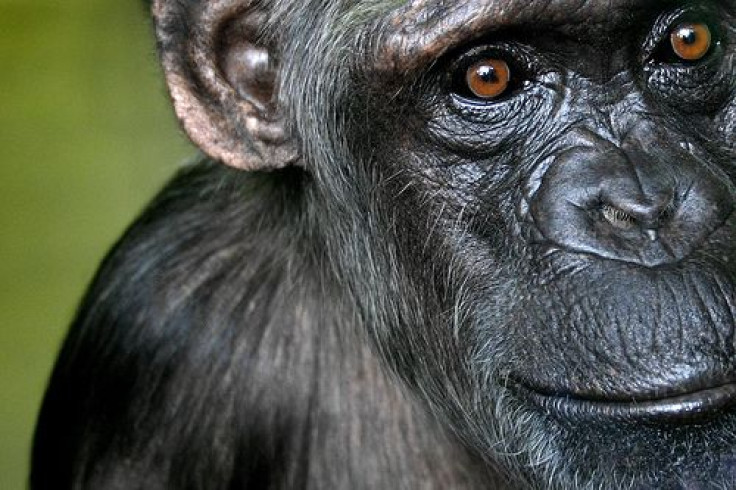Animal Testing In Chimpanzees Set To Stop With New Endangered Species Designation

The United States is currently the only developed country that uses chimpanzees in animal research studies. Newly assigned to the endangered species list, however, the primates may no longer call laboratories their home. The U.S. Fish and Wildlife Service has proposed to add captive chimps to the list of endangered animals, protecting them both in captivity and in the world. This new change in classification would further end the practice of using chimpanzees in federal funded research projects.
There are currently around 450 chimpanzees being used in some 30 government research programs, and less than 300,000 individuals remain in the wild. Recommendations from an advisory group to the National Institutes of Health (NIH) in January suggested that the great majority of chimpanzees currently being used for medical and behavioral research be put out to pasture in reserves where they can live out their days. "There is no compelling scientific reason to maintain a large research population," said Daniel Geschwind, a researcher at the University of California at Los Angeles who co-chaired the working group that made the recommendations to the NIH advisory panel. "The majority of NIH-owned chimps should be designated for retirement," he continued.
The use of chimpanzees has benefited human health, allowing for the development of vaccines for hepatitis A and B, helping to discover that high salt intake can lead to high blood pressure, and aiding the development of antibodies that are the foundations of the next-generation of cancer treatments. But if their addition to the endangered species list passes, then any research on chimps must show a clear and definitive benefit to the health of chimpanzees, such as discovering treatments to chimpanzee-specific diseases or conservation.
Dr. Jane Goodall, DBE, founder of the Jane Goodall Institute and UN Messenger of Peace, said, "I was so pleased to hear about the proposed rule. This is exceptional news for all chimpanzees and for all the petitioners, especially the Humane Society of the United States, who have worked so hard on this issue...This decision gives me hope that we truly have begun to understand that our attitudes toward treatment of our closest living relatives must change. I congratulate the U.S. Fish and Wildlife Service for this very important decision."
Chimpanzees are at great risk in the wild as their natural habitat is suffering from deforestation in addition to encroachment from humans as well as chimp-specific diseases running rampant. The U.S. Fish and Wildlife Service's International Affairs program has given $8.6 million in funding toward protecting chimpanzees across 19 African countries. Adding captive chimps to the endangered species list would limit their import into and export out of the U.S. by requiring permits. The designation would also make it more difficult to perform research as it would restrict the legality of harming, harassing, killing, and injuring the primates within the United States.
The proposal to add captive chimpanzees to the endangered species list will be published in the Federal Register on June 12, 2013, and will be open for public comment for 60 days.



























